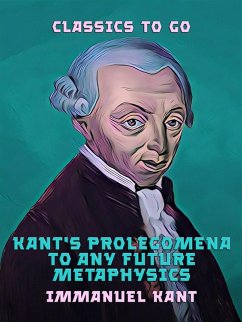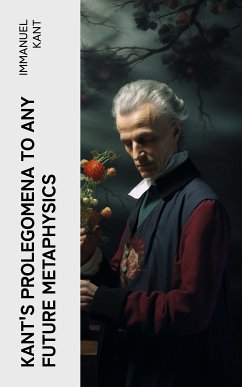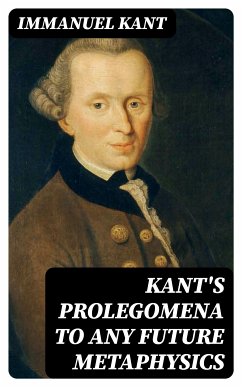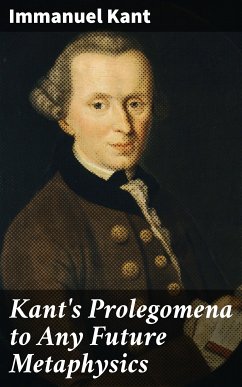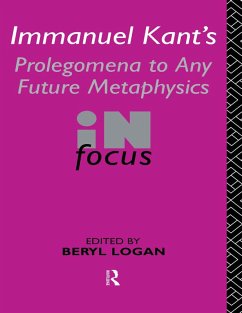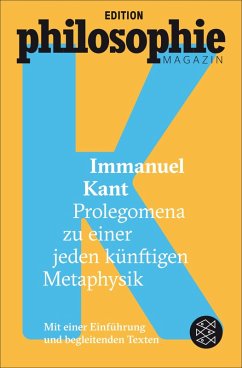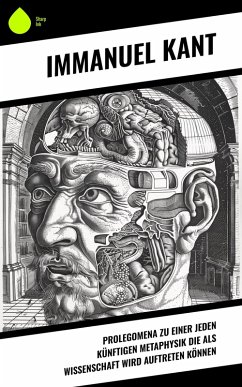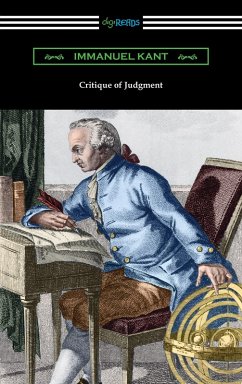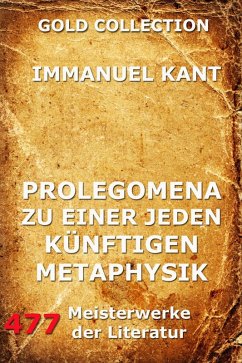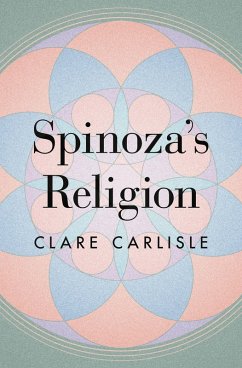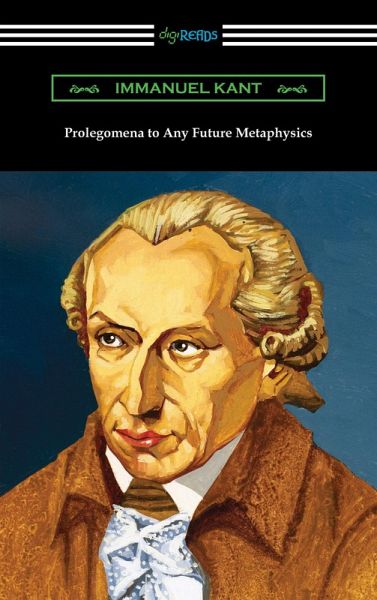
Prolegomena to Any Future Metaphysics (eBook, ePUB)

PAYBACK Punkte
3 °P sammeln!
In 1781, Immanuel Kant published his first and most famous work, the "Critique of Pure Reason". To the German philosopher's dismay, the work was at first poorly received and largely misunderstood by his readers. As a result, two years later Kant produced his "Prolegomena to any Future Metaphysics that will be Able to Present Itself as a Science" to serve as an introduction to the "Critique". He restated the main ideas of his philosophy in what Schopenhauer, in 1819, declared was "the finest and most comprehensible of Kant's principal works, which is far too little read, for it immensely facili...
In 1781, Immanuel Kant published his first and most famous work, the "Critique of Pure Reason". To the German philosopher's dismay, the work was at first poorly received and largely misunderstood by his readers. As a result, two years later Kant produced his "Prolegomena to any Future Metaphysics that will be Able to Present Itself as a Science" to serve as an introduction to the "Critique". He restated the main ideas of his philosophy in what Schopenhauer, in 1819, declared was "the finest and most comprehensible of Kant's principal works, which is far too little read, for it immensely facilitates the study of his philosophy." Immanuel Kant is considered to be one of the most important and influential figures in Western philosophy for his work in the areas of metaphysics, anthropology, theoretical physics, logic, and moral philosophy. Remarkably, Kant never left the town of Königsberg, Germany, where he had been born, received schooling, and served as lecturer at the University for many years. Presented here is the translation of Paul Carus. This edition includes a biographical afterword.
Dieser Download kann aus rechtlichen Gründen nur mit Rechnungsadresse in A, D ausgeliefert werden.





